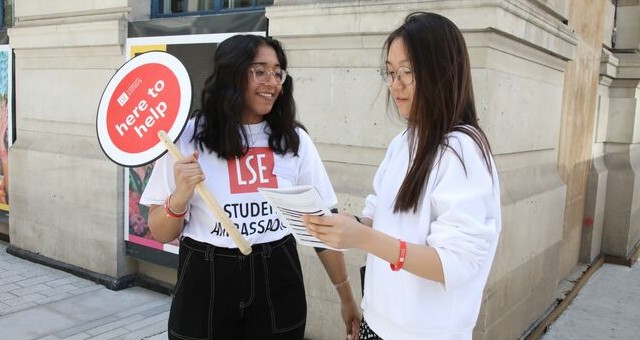For those of you, international students, who are planning to apply to a UK university, writing a UCAS personal statement will be a daunting task for sure. Sometimes you’ll feel lost and might even want to give up when you have to edit your draft multiple times. I should know, I’ve also been through all of that! I’ll be brutally honest here – I had to write eight drafts before submitting my university application. It was a painful process
So here I am with some key tips that I wish I knew when I was writing my own personal statement.
1. Why this programme?
Once you get offers from UK universities, it is very difficult to switch to a different programme. If you accept the offer, you’re committing yourself to study your chosen subject(s) for the next three (or four) years. Therefore, university admissions officers are eager to know how and why you are passionate about studying certain disciplines in their schools.
Be aware that you only send one personal statement to all the universities that you are applying to. If you have a clear rationale for your programme choice, I strongly recommend that you do research into several universities and find out the curriculum that fits your interests the most. Even if your personal statement is of high-quality, at the end of the day, you might not get accepted if the school’s curriculum does not match your interests.
2. A personal statement is not a book review
Remember, you’re only applying for an undergraduate degree. You’re here to study, and the professors do not expect you to know everything about your chosen subject(s). Of course, reading academic books and journal articles could help you to figure out what you want to study further. It’s never a bad idea to include references to relevant sources to demonstrate your academic reading capabilities. That, however, doesn’t mean that the majority of your personal statement should be dominated by what you’ve read so far. Books and journal articles are meant to be a set of evidence to show your passion for a given subject. Quality matters over quantity. Integrate these sources as part of your unique rationale behind your programme choice; that is more than enough.
3. Critical reflection is key
This leads me to my next point. Referring to academic sources becomes meaningful when you include your own critical reflection on the text and connect them to your journey of developing your passion for the subject(s) that you want to study at university. In a similar vein, avoid listing your extracurricular activities if they are not relevant. The point here is what skills you’ve acquired and what you’ve learned about your academic interests through those activities, not how many activities you’ve participated in so far. Make every sentence count, and take this opportunity to reflect on moments when you fell in love with your chosen subject(s).
4. If necessary, balance the word count
Some of you might want to apply to joint honours programmes, just like I did. In this case, I’d advise you to allocate approximately equal amounts of words to each subject. As an International Relations and History student, my degree is intentionally structured in a way that I would take two modules for each subject throughout my three years at LSE. Thus, your interests in both subjects must be equally demonstrated in your personal statement. Most joint honour programmes consist of interrelated subjects, so it could be a good idea to embark on why those connections between subjects matter to your personal interests.
5. Be honest with yourself
There is no “right way” to draft a personal statement. No one can write your personal statement on your behalf, and trust me, you’re the one who knows you the most. There is no “relatively easy” programme anyway. Prioritise what you love, because, at the end of the day, that love will keep you going regardless of how many challenges you embrace along your academic journey at university.





